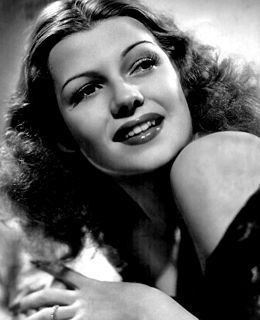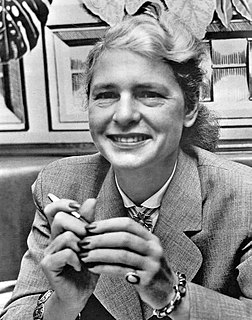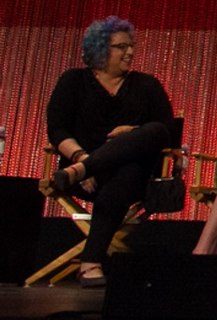A Quote by Lennart Nilsson
And I remember that the editors wanted to have a witness to say that this was really the case, because it was a very sharp picture of the just the face, the head of the fetus inside the womb.
Related Quotes
For the fetus, though enclosed in the womb of its mother, is already a human being, and it is a monstrous crime to rob it of the life which it has not yet begun to enjoy. If it seems more horrible to kill a man in his own house than in a field, because a man's house is his place of most secure refuge, it ought surely to be deemed more atrocious to destroy a fetus in the womb before it has come to light.
I put a lot of pressure on myself to figure out what to say and, lately, I've started trying to work through things in my head. Before, I wouldn't trust my instincts or what I wanted to say and I really struggled with what I wanted to say. I guess it's just the classic case of writer's block and learning how to work through that. I'm slowly learning how.
I do not remember very many things from the inside out. I do not remember what it felt like to touch things, or how bathwater traveled over my skin. I did not like to be touched, but it was a strange dislike. I did not like to be touched because I craved it too much. I wanted to be held very tight so I would not break. Even now, when people lean down to touch me, or hug me, or put a hand on my shoulder, I hold my breath. I turn my face. I want to cry.
The intelligence community, in particular the FBI, have been sounding alarms about this for more than a year. So to argue that suddenly we have to do this because of the San Bernardino case doesn't really pass the straight-face test. I mean, they've been talking about this. And to say, well, it will only apply to this case, that just - that doesn't wash. This is a major piece of public policy.
Some people say they use images to help them remember intricacies. Others say they just remember. If they are able to form an image of the face, it is because they remember how it was: it is not that an image guides memory, but that memory produces an image, or the sense of imaging. We have no agreed way to talk clearly about such things.
I learned capacity for self-reflection very early, finding it through interior monologues that books are so good at and that visual media is so bad at because it's so boring - nothing's happening. In a book, you can be inside the narrator's head for 50 pages, and nothing needs to happen. Then you learn to be inside your own head without something needing to happen. It's a very good antidote to a crazy, restless, "what's next?" culture - that you can just be in your own head and nothing is happening except that this is a rich place. I love that.
I was really, really, really nervous when I got this role because I did feel it was important to make Alice [Cullen] just as lovable as I read her being on paper and, kind of, full of vitality. In my head she is just this light and breath of fresh air in very dramatic settings - because I feel like we're always extremely dramatic in this film. I wanted people to be able to relate to her.




































